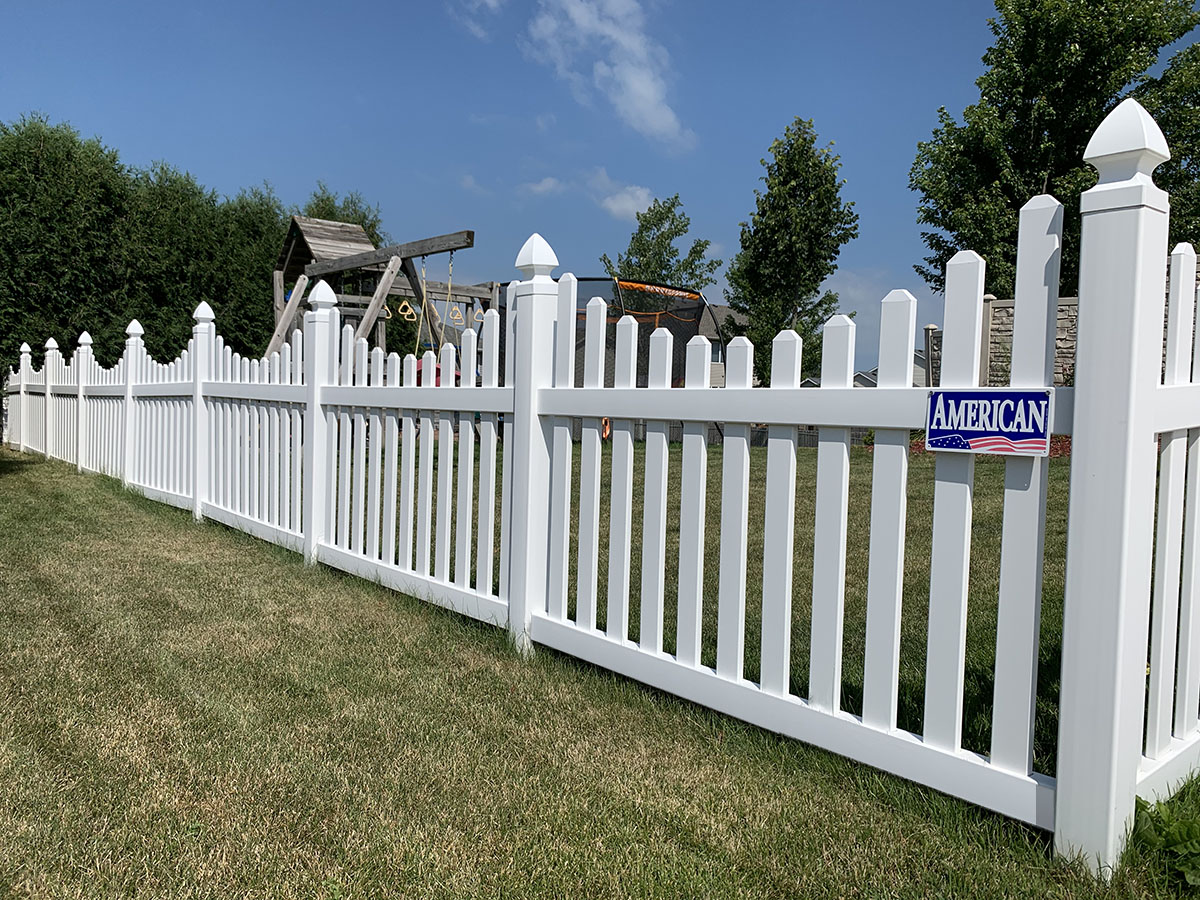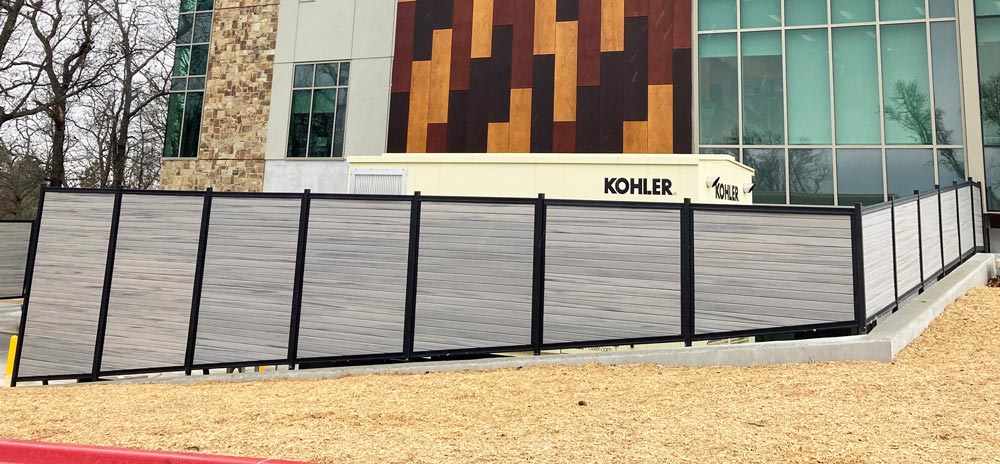All Categories
Featured
When preparing to install a fence, one of the initial considerations is price. Fence products can be found in a broad variety of prices, with factors like sturdiness, layout, and upkeep affecting their total cost. This guide breaks down the average prices of prominent fencing products to help you select the ideal alternative for your spending plan and demands.
Ordinary Expense: $10--$ 30 per linear foot. Advantages: Affordable, very easy to install, and calls for very little upkeep. Considerations: Less privacy and aesthetic allure contrasted to various other products. This kind of secure fencing is optimal for protecting large areas like yards or business homes.
![]()
Typical Cost: $15--$ 50 per direct foot. Benefits: Timeless aesthetic appeals and flexible designs such as latticework, picket, or personal privacy fences. Considerations: Calls for routine upkeep, including discoloration or sealing, to avoid rot and prolong its life. Costs wood types like cedar or redwood cost more yet are more immune to decay than affordable choices like yearn.
Typical Expense: $20--$ 60 per direct foot. Advantages: Immune to weather, bugs, and fading. Basically maintenance-free. Factors to consider: Greater in advance expense contrasted to wood. Vinyl is a superb long-lasting financial investment, particularly in areas with extreme weather conditions.
Ordinary Price: $25--$ 70 per direct foot. Advantages: Ideal and rust-resistant for various property types, consisting of slopes. Factors to consider: Less sturdy than steel or wrought iron. This fence material is commonly made use of for ornamental purposes or to confine gardens and swimming pools.
Ordinary Price: $30--$ 100 per linear foot. Advantages: Very durable and enhances building worth with its decorative designs. Factors to consider: Calls for routine maintenance to stop rust. Wrought iron fencings are perfect for high end residential properties or those wanting to make a bold statement.
Ordinary Price: $25--$ 55 per linear foot. Benefits: Reduced maintenance, eco-friendly, and immune to weathering. Considerations: Higher initial cost than wood or chain link. This product simulates the look of timber while calling for much less maintenance.
![]()
Ordinary Expense: $12--$ 30 per linear foot. Advantages: Renewable material and aesthetically distinct. Factors to consider: Less long lasting than other products and may need substitute quicker. Bamboo is a wonderful option for decorative purposes or short-term secure fencing requirements.
Typical Price: $50--$ 150 per direct foot. Advantages: Lasting, gives outstanding personal privacy and noise insulation. Considerations: High installation expense and labor-intensive building and construction. This choice is ideal matched for home owners seeking to make a substantial lasting investment.
Additional Expenses to Bear In Mind. Setup: Labor expenses generally vary from $5--$ 20 per direct foot, depending on the material and style complexity. Gates: Gates can include $200--$ 1,500 or even more, based upon the product and size. Permits: Secure fencing projects may need licenses, which can set you back $50--$ 400 depending upon your location. Verdict. Choosing the appropriate fencing material depends on your budget, maintenance choices, and preferred visual. By weighing the expenses and benefits of each material, you can invest in a fence that enhances your home's value and performance.
- Chain Web Link Fence: Affordable and Useful. Chain web link fence is among the most affordable alternatives for house owners looking for functionality.
Ordinary Expense: $10--$ 30 per linear foot. Advantages: Affordable, very easy to install, and calls for very little upkeep. Considerations: Less privacy and aesthetic allure contrasted to various other products. This kind of secure fencing is optimal for protecting large areas like yards or business homes.

- Wood Fence: Traditional and Versatile. Timber fence remains a popular selection due to its all-natural elegance and personalized layout alternatives.
Typical Cost: $15--$ 50 per direct foot. Benefits: Timeless aesthetic appeals and flexible designs such as latticework, picket, or personal privacy fences. Considerations: Calls for routine upkeep, including discoloration or sealing, to avoid rot and prolong its life. Costs wood types like cedar or redwood cost more yet are more immune to decay than affordable choices like yearn.
- Vinyl Fencing: Low and sturdy Maintenance. Plastic fence is a modern-day solution for property owners looking for longevity without compromising looks.
Typical Expense: $20--$ 60 per direct foot. Advantages: Immune to weather, bugs, and fading. Basically maintenance-free. Factors to consider: Greater in advance expense contrasted to wood. Vinyl is a superb long-lasting financial investment, particularly in areas with extreme weather conditions.
- Aluminum Fence: Durable and trendy. Aluminum fencings are recognized for their lightweight building and construction and smooth layout.
Ordinary Price: $25--$ 70 per direct foot. Advantages: Ideal and rust-resistant for various property types, consisting of slopes. Factors to consider: Less sturdy than steel or wrought iron. This fence material is commonly made use of for ornamental purposes or to confine gardens and swimming pools.
- Wrought Iron Fence: Elegant and Strong. Wrought iron fencing integrates toughness with decorative appeal, making it a premium selection.
Ordinary Price: $30--$ 100 per linear foot. Advantages: Very durable and enhances building worth with its decorative designs. Factors to consider: Calls for routine maintenance to stop rust. Wrought iron fencings are perfect for high end residential properties or those wanting to make a bold statement.
- Composite Secure Fencing: Eco-Friendly and Long-Lasting. Compound fencing is a blend of recycled wood and plastic, supplying sturdiness and sustainability.
Ordinary Price: $25--$ 55 per linear foot. Benefits: Reduced maintenance, eco-friendly, and immune to weathering. Considerations: Higher initial cost than wood or chain link. This product simulates the look of timber while calling for much less maintenance.

- Bamboo Fence: Natural and Affordable. Bamboo fence is an eco-conscious selection that adds a tropical aesthetic to homes.
Ordinary Expense: $12--$ 30 per linear foot. Advantages: Renewable material and aesthetically distinct. Factors to consider: Less long lasting than other products and may need substitute quicker. Bamboo is a wonderful option for decorative purposes or short-term secure fencing requirements.
- Stone and Stonework Fencing: Costs and Timeless. Stone and stonework fences are the most visually striking and durable choices, often thought about a deluxe enhancement.
Typical Price: $50--$ 150 per direct foot. Advantages: Lasting, gives outstanding personal privacy and noise insulation. Considerations: High installation expense and labor-intensive building and construction. This choice is ideal matched for home owners seeking to make a substantial lasting investment.
Additional Expenses to Bear In Mind. Setup: Labor expenses generally vary from $5--$ 20 per direct foot, depending on the material and style complexity. Gates: Gates can include $200--$ 1,500 or even more, based upon the product and size. Permits: Secure fencing projects may need licenses, which can set you back $50--$ 400 depending upon your location. Verdict. Choosing the appropriate fencing material depends on your budget, maintenance choices, and preferred visual. By weighing the expenses and benefits of each material, you can invest in a fence that enhances your home's value and performance.
Latest Posts
Explore Best Car Repair Solutions at Montclare Auto Repair – Reliable Repairs Await
Published Jun 01, 25
1 min read
Learn Why Chicago Drivers Select Montclare Auto Repair for Reliable Service and Significant Savings
Published May 30, 25
1 min read
Secure Your Home with Quality Residential Roof
Published May 25, 25
1 min read
More
Latest Posts
Explore Best Car Repair Solutions at Montclare Auto Repair – Reliable Repairs Await
Published Jun 01, 25
1 min read
Learn Why Chicago Drivers Select Montclare Auto Repair for Reliable Service and Significant Savings
Published May 30, 25
1 min read
Secure Your Home with Quality Residential Roof
Published May 25, 25
1 min read